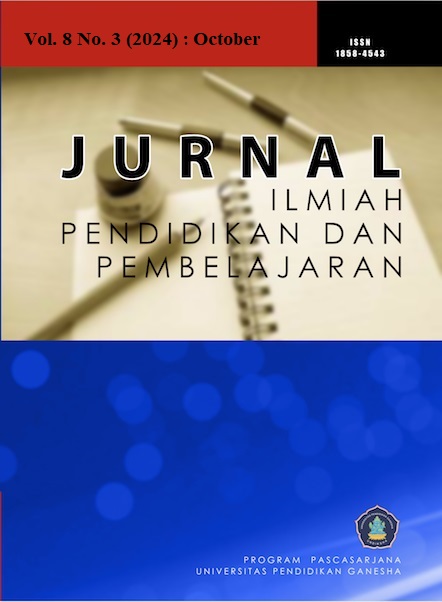Pancasila Module Based on Good and Strong Character (BAKU) in Strengthening the Pancasila Student Profile of Elementary School Students
Keywords:
Character Education, Pancasila, Profile of Pancasila StudentsAbstract
Lately, children's character has been one of the many challenges faced by education today, both internal and external. Students are not used to living a disciplined life due to the lazy character attitude of a few students. This study aims to create a Pancasila module based on sound and strong character (BAKU) to strengthen the Pancasila student profile of elementary school students. The type of research is development research with the ADDIE model. Data collection method with a questionnaire. The research subjects consisted of experts, teachers and students. The data analysis method used quantitative and qualitative analysis. The study results showed that material and language experts obtained 89% in the very valid category. Media experts obtained 90% in the very valid category. The Pancasila module BAKU character of students is in the high category of 2.26%, in the medium category as much as 97.74. In addition, no students were found who were included in the very low criteria. The conclusion of the study shows that the Pancasila module based on BAKU character is feasible to use, and there has been an increase in students' BAKU character since the implementation of the module. This research implies that the Pancasila module based on good and strong character (BAKU) in strengthening the Pancasila student profile of elementary school students that was developed is suitable for use in learning.
Published
How to Cite
Issue
Section
License
Copyright (c) 2024 Syahlan Mattiro, Elly Mahlihah, Wahyu , Encep Syarief Nurdin

This work is licensed under a Creative Commons Attribution-ShareAlike 4.0 International License.
Authors who publish with the Jurnal Ilmiah Pendidikan dan Pembelajaran (JIPP) agree to the following terms:
- Authors retain copyright and grant the journal the right of first publication with the work simultaneously licensed under a Creative Commons Attribution License (CC BY-SA 4.0) that allows others to share the work with an acknowledgment of the work's authorship and initial publication in this journal.
- Authors are able to enter into separate, additional contractual arrangements for the non-exclusive distribution of the journal's published version of the work (e.g., post it to an institutional repository or publish it in a book), with an acknowledgment of its initial publication in this journal.
- Authors are permitted and encouraged to post their work online (e.g., in institutional repositories or on their website) prior to and during the submission process, as it can lead to productive exchanges, as well as earlier and greater citation of published work. (See The Effect of Open Access)










